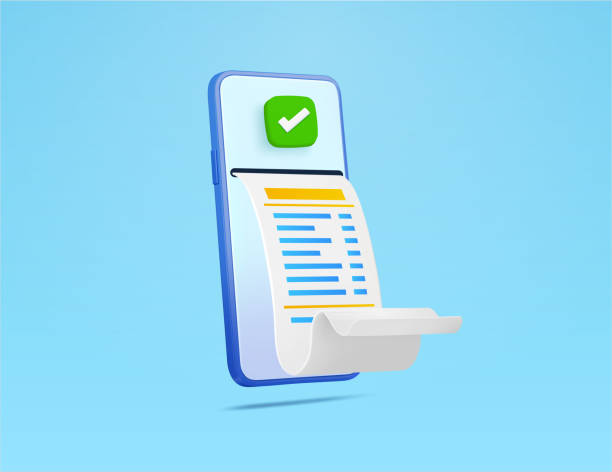Understanding the Distinction: A Comprehensive Guide to Billing and Invoicing Differences


Introduction
Understanding the difference between billing and invoicing is crucial for both individuals and businesses to manage their financial transactions effectively. Often, the terms are used interchangeably, causing confusion and misconceptions. This article is designed to give you a thorough understanding of billing vs invoicing and clarify what sets them apart.
Billing vs Invoicing: What’s the Difference?
Overview of Billing
Billing, in simple terms, is the process through which businesses request payment for the goods or services provided. It’s an umbrella term, which involves generating a bill detailing the total amount a customer owes.
Overview of Invoicing
Invoicing, on the other hand, involves generating an invoice, a detailed document issued by the seller to the buyer. The invoice lists products or services, quantities, agreed prices, and terms of payment.
Key Differences Between Billing and Invoicing
Billing and invoicing, while related, are not identical. The differences lie in their purpose, format, and the time they are issued.
Deep Dive into the World of Billing
Understanding the Billing Process
When a business sells to a customer, they start the billing process. It continues until the business gets paid by the customer. This process might differ for each business, depending on their rules and how they handle things internally.
Types of Billing
These are different types of billing that can be grouped into categories- which include recurring billing, time-based billing, and consolidated billing. Each type has its own purpose and is used in certain situations depending on the nature of business.
The Role of Billing in Business
Billing is extremely important in business as it helps make sure payments are made smoothly. It keeps the money coming in regularly, and also helps build trust with the customers by being open and responsible about the transactions.
Invoicing: A Detailed Exploration
Unravelling the Invoicing Process
When you need to get paid for your products and services, you need to go through the invoicing process. It starts with making an invoice, which is like a bill that you send to your customer, and the invoice asks them to pay you and also acts as an official record for taxes and bookkeeping.
Types of Invoices
In the world of invoice, there are different types of invoices that serve a specific purpose and are used in different situations. Some include regular invoices, preliminary invoices, recurring invoices, and credit invoices.
Why Invoicing Matters to Businesses
Invoicing is vital for businesses as it provides a legal record of sales, aids in accounting and tax filing, and encourages timely payments from customers.
Billing vs Invoicing: The Key Differences
Purpose and Function
While both billing and invoicing are about requesting payment, they serve different purposes. Billing is an overall process, while invoicing is a step within that process — the issuance of a document that details the transaction.
Timing of Issue
Typically, billing is an ongoing process, while an invoice is issued after the provision of goods or services.
Format and Detail
Invoices tend to be more detailed than bills. They include information such as item descriptions, prices, terms of payment, and contact details.
Choosing Between Billing and Invoicing: Which Is Right for Your Business?
Assessing Your Business Needs
Whether your business should focus on billing or invoicing depends on your unique needs and the nature of your transactions. It’s crucial to evaluate these factors carefully.
Considerations for Small Businesses
For small businesses, simple billing might suffice. However, as transactions increase in complexity, a detailed invoicing system could be more beneficial.
Considerations for Large Corporations
In the case of large corporations with intricate transactions, a robust invoicing system can provide the needed detail and facilitate easier tracking.
Billing and Invoicing Software: Streamlining Your Financial Processes
The Rise of Digital Solutions
The emergence of billing and invoicing software has made financial processes easier and more efficient. They not only automate manual tasks but also minimise errors.
Choosing the Right Software for Your Business
Selecting the right software depends on several factors like the size of your business, the complexity of transactions, and your budget.
Benefits of Using Billing and Invoicing Software
Using such software can bring numerous benefits, including streamlined operations, timely payments, and improved customer relations.
Frequently Asked Questions (FAQs)
1. Are billing and invoicing the same thing?
While they’re related, billing and invoicing are not the same. Billing is the process of requesting payment from customers, while invoicing involves issuing a document detailing the transaction.
2. When should a business issue an invoice?
An invoice is typically issued after the provision of goods or services but before payment is received.
3. Can an invoice be used for tax purposes?
Yes, invoices serve as a legal document that can be used for taxation and accounting purposes.
4. What details should an invoice include?
An invoice should include information such as item descriptions, prices, terms of payment, and contact details.
5. How can billing and invoicing software benefit a business?
Billing and invoicing software can help businesses streamline their financial processes, facilitate timely payments, minimise errors, and improve customer relations.
6. How can a business choose between billing and invoicing?
The choice between billing and invoicing depends on a business’s unique needs and the nature of its transactions. Factors to consider include the size of the business and the complexity of its transactions.
Conclusion
Billing and invoice may seem similar, but actually have different roles and characteristics, it’s important to understand these differences to efficiently handle the businesses finances and maintain good relationships with customers.
External Links/ Sources:
Billing Vs Invoicing: What’s the Difference?
